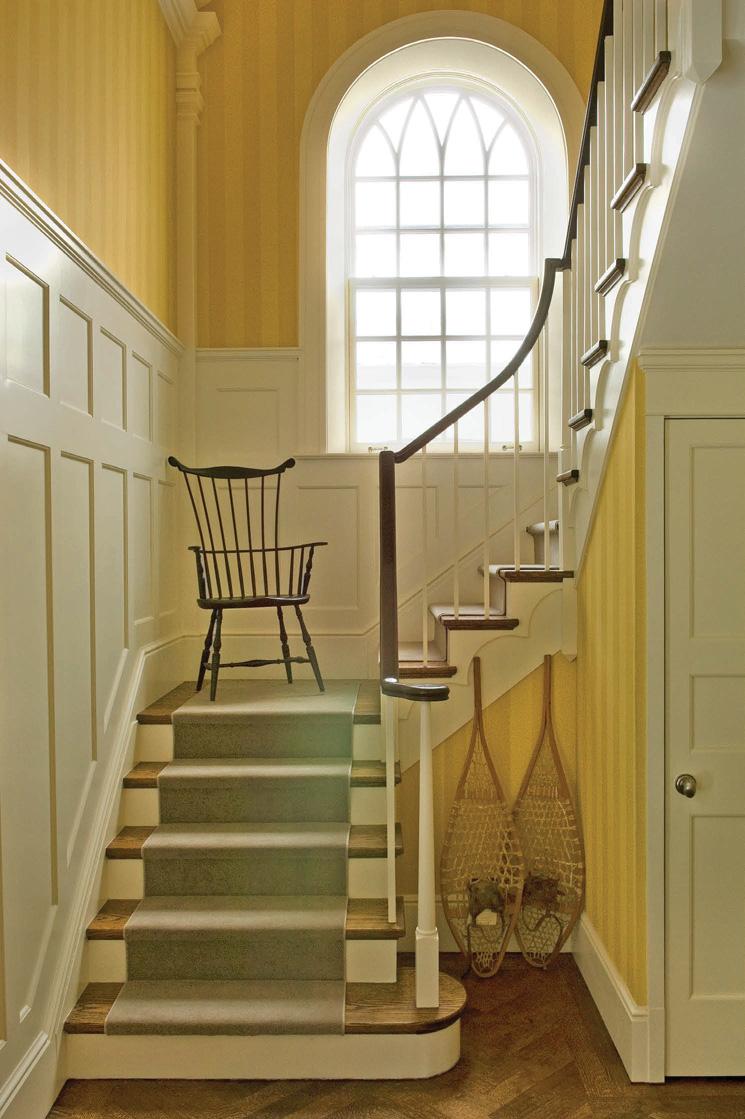
I'll admit I waited a while before carpeting my stairs. We'd spent a year replacing the worn-out, chipped and painted treads with hand-finished oak and were enjoying the beautiful wood. A couple of winters with wet shoes and muddy paws showed it was time to preserve that woodwork. I decided that a carpet runner would protect the treads but still show off the oak, while making the steps less slippery and thus safer. A stair runner is also period-appropriate for my Victorian house.
The first step was deciding on the installation method: either Hollywood or waterfall. The Hollywood (or French cap or upholstered) method wraps the carpet around the edge of the tread nosing at each step, fastening it to the riser for a fitted look. This is best on stairs that get a lot of attention, as at entries and landings, in principal hallways, in main bedroom corridors. The waterfall method is more casual. Here the carpet is secured to the edge of the stair tread but then drops straight down to the back of the next tread without being tacked to the riser. This technique is usually saved for thicker, harder-to-handle carpet and for secondary passageways such as kitchen or basement stairs. My staircase was meant to be a showstopper, so I chose the more formal Hollywood method.
The second step was choosing the carpet. Although most runners can be cut down from a larger carpet roll, it would then need hemming on either side to prevent fraying. I opted for a prehemmed runner. These are generally made in 27" and 32" widths. I chose the narrower option to expose more wood. The typical recommendation is to choose a runner width that will expose 4" to 7" of tread on each side. Use a carpet wide enough so that people won't step partially on the wood, which can lead to tripping. A handy tip to visualize the proper width: Cut the available widths out of paper or cardboard and test it on the treads.
This story is from the May - June 2023 edition of Old House Journal.
Start your 7-day Magzter GOLD free trial to access thousands of curated premium stories, and 9,000+ magazines and newspapers.
Already a subscriber ? Sign In
This story is from the May - June 2023 edition of Old House Journal.
Start your 7-day Magzter GOLD free trial to access thousands of curated premium stories, and 9,000+ magazines and newspapers.
Already a subscriber? Sign In

Navigating the Lumberyard - Here's some lumber lingo you should know before you venture into a lumberyard.
Here's some lumber lingo you should know before you venture into a lumberyard. Almost everyone fixing an old house will end up at a lumberyard-whether it's a local supplier or the organized aisles of a big-box home-improvement store.

a farmhouse renewed
Sensitive renovations and restoration work preserved a house that dates to 1799.
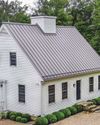
AN OVERVIEW OF METAL ROOFING
METAL ROOFS ARE RESURGENT, FOR GOOD REASONS.
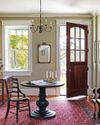
ENDURING BEAUTY IN WALLS of STONE
Now back in the family who had been here since 1830, the old farmhouse is again ready for generations to come. Additions dating to 1840 and the 1950s were preserved.

ARCHITECTURAL DETAILS COME TO LIFE
Owners and their designer celebrate the unique features of a 1912 Arts & Crafts Tudor.
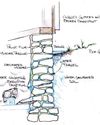
For a Wet Basement Wall
If there's problem common to old houses, it's a wet basement. I'm not talking about occasional flooding, but rather a basement that apparently seeps or leaks after even a rain shower or during snowmelt. Several approaches are available; sustainable solutions will get to the root of the problem.
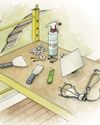
Patching a Plaster Wall
Fix a hole in the wall with a few common tools and some drywall supplies. Practice your technique!
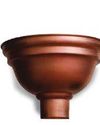
Roofing & Siding
Make note of these historical and unusual materials for the building envelope.

The Riddle of the water
When water incursion happens, the roof isn't necessarily the culprit. Maybe snaking a drain line, or clearing debris from a clogged gutter, temporarily will stem a leak. But a recurring problem usually means other forces are at work. It takes persistence-and a team with the right skills and patience—to identify the source and apply a solution.

Light-filled Craftsman Redo
For a dark kitchen in a 1914 Illinois house, the trick was anchoring white expanses with woodsy warmth.